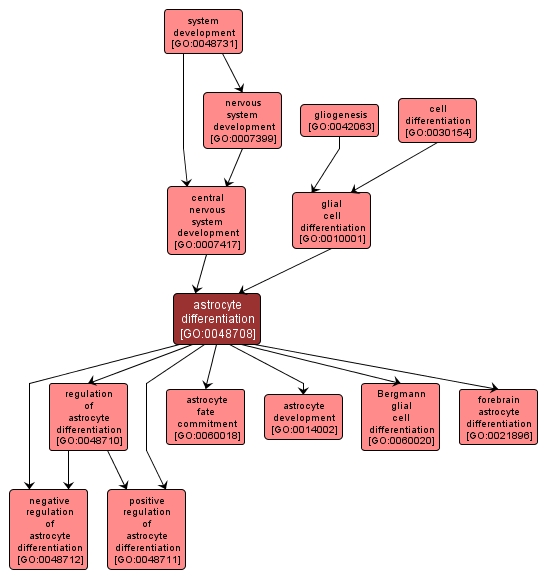GO TERM SUMMARY
|
| Name: |
astrocyte differentiation |
| Acc: |
GO:0048708 |
| Aspect: |
Biological Process |
| Desc: |
The process whereby a relatively unspecialized cell acquires the specialized features of an astrocyte. An astrocyte is the most abundant type of glial cell. Astrocytes provide support for neurons and regulate the environment in which they function. |
|

|
INTERACTIVE GO GRAPH
|














